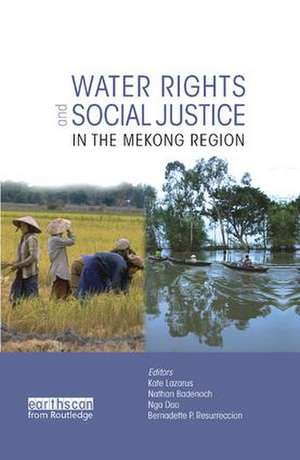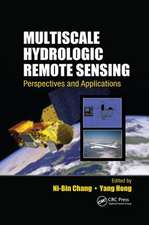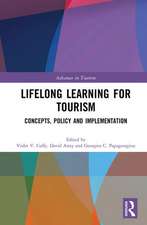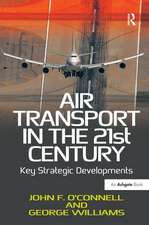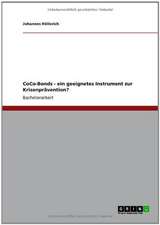Water Rights and Social Justice in the Mekong Region
Editat de Kate Lazarus, Bernadette P. Resurreccion, Nga Dao, Nathan Badenochen Limba Engleză Paperback – 12 oct 2017
The authors show how vitally important it is that water governance is democratized to allow a more equitable sharing of water resources and counteract the pressures of economic growth that may pose risks to social welfare and environmental sustainability.
| Toate formatele și edițiile | Preț | Express |
|---|---|---|
| Paperback (1) | 447.51 lei 6-8 săpt. | |
| Taylor & Francis – 12 oct 2017 | 447.51 lei 6-8 săpt. | |
| Hardback (1) | 1113.12 lei 6-8 săpt. | |
| Taylor & Francis – 24 feb 2011 | 1113.12 lei 6-8 săpt. |
Preț: 447.51 lei
Nou
Puncte Express: 671
Preț estimativ în valută:
85.64€ • 89.08$ • 70.70£
85.64€ • 89.08$ • 70.70£
Carte tipărită la comandă
Livrare economică 14-28 aprilie
Preluare comenzi: 021 569.72.76
Specificații
ISBN-13: 9781138579064
ISBN-10: 1138579068
Pagini: 288
Dimensiuni: 156 x 234 x 15 mm
Greutate: 0.41 kg
Ediția:1
Editura: Taylor & Francis
Colecția Routledge
Locul publicării:Oxford, United Kingdom
ISBN-10: 1138579068
Pagini: 288
Dimensiuni: 156 x 234 x 15 mm
Greutate: 0.41 kg
Ediția:1
Editura: Taylor & Francis
Colecția Routledge
Locul publicării:Oxford, United Kingdom
Cuprins
Preface: About M-POWER 1. Water Governance and Water Rights in the Mekong Region Participation in Decision-making 2. Water Transfer Planning in Northeast Thailand: Rhetoric and Practice 3. Local People's Participation in Involuntary Resettlement in Vietnam: A Case Study of the Son La Hydropower Project Access and Equity 4. Rights and Rites: Local Strategies to Manage Competition for Water Resources in Northern Thailand 5. Local institutions and the Politics of Watershed Management in the Uplands of Northern Thailand 6. Gender, Commercialization and the Fisheries-Aquaculture Divide in the Mekong Region Competing Demands 7. Fisheries, Nutrition and Regional Development Pathways: Reasserting Food Rights 8. Livelihood and Environment Trade-offs at the Time of Doi Moi: Industrial Water Use and Wastewater Management in a Craft Village in Peri-Urban Hanoi Water Rights and Climate Vulnerability 9. Climate Change in the Asian Highlands: Socio-economic Implications for the Mekong Region 10. Linking Climate Change Risks and Rights of Upland Peoples in the Mekong Conclusion 11. Seeking Justice in Managing Water in the Mekong Region: Theory and Praxis Index
Notă biografică
Kate M. Lazarus is a water governance specialist with the Mekong Program on Water Environment and Resilience (M-POWER) and the Challenge Program on Water and Food (CPWF), Lao PDR.
Nathan Badenoch is an Associate Professor at Kyoto University's Center for Southeast Asian Studies, Japan. Nga Dao is co-founder and director of the Center for Water Resources Conservation and Development (WARECOD) in Vietnam and a PhD student in human geography at York University, Canada.
Bernadette P. Resurreccion is Associate Professor in Gender & Development Studies, School of Environment, Resources & Development at the Asian Institute of Technology, Thailand.
Nathan Badenoch is an Associate Professor at Kyoto University's Center for Southeast Asian Studies, Japan. Nga Dao is co-founder and director of the Center for Water Resources Conservation and Development (WARECOD) in Vietnam and a PhD student in human geography at York University, Canada.
Bernadette P. Resurreccion is Associate Professor in Gender & Development Studies, School of Environment, Resources & Development at the Asian Institute of Technology, Thailand.
Recenzii
"Asia changes. People stream to towns and cities. Macroeconomic indicators skyrocket but inequality also increases, as does strain on the environment. The Mekong Region is at the heart of this development. Who has rights to say where to go and how this change is governed? What should be done about the injustice of marginalization? This book addresses these questions in highly pertinent and elaborate ways." – Olli Varis, Professor of Water Resources, Aalto University, Finland
"By addressing social justice issues around water in terms of rights, this impressive book goes to the heart of key governance issues facing the Mekong. Through lenses including participation, ethnicity, gender and environment, the well chosen case studies look beyond the field of water management to interrogate development in terms of its implications for rights to life and livelihood." – Philip Hirsch, Professor of Human Geography and Director of the Australian Mekong Resource Centre, University of Sydney, Australia
"This book is a fascinating contribution to water wisdom. It starts from an analysis of water rights as intimately tied to wider social relations of power, which are characterized by conflicts of interest, by negotiations and by struggle and contestation. This perspective is not just refreshing, but also very needed in times when different processes – such as globalization, climate change and a sustained policy belief in markets as efficient allocation mechanisms – all seem to work together to create ever larger gaps between those who have access to and control of water and those who have not. The different chapters brilliantly illustrate the complex linkages between water, politics and power, and show how such linkages are colored and mediated in multifaceted ways by ethnic, professional and gender identities and structures. In all, it provides important ingredients for formulating a more just water future." – Margreet Zwarteveen, Wageningen University, the Netherlands
"In all, this book is to be commended for its local storytelling, which effectively reveals how a number of water-management practices and emergent priorities have led to socially unjust and inequitable outcomes. For social science students, scholars, water practitioners, and policy-makers interested in this region, the book’s framing of development objectives in terms of livelihood security and household dependence on seasonal river flows and wetland inundation certainly offers thoughtful observations into potential alternative priorities and approaches, which are often neglected when viewed from a purely regional economic perspective" – Patricia Waters and Kenneth Kang, BioOne
"By addressing social justice issues around water in terms of rights, this impressive book goes to the heart of key governance issues facing the Mekong. Through lenses including participation, ethnicity, gender and environment, the well chosen case studies look beyond the field of water management to interrogate development in terms of its implications for rights to life and livelihood." – Philip Hirsch, Professor of Human Geography and Director of the Australian Mekong Resource Centre, University of Sydney, Australia
"This book is a fascinating contribution to water wisdom. It starts from an analysis of water rights as intimately tied to wider social relations of power, which are characterized by conflicts of interest, by negotiations and by struggle and contestation. This perspective is not just refreshing, but also very needed in times when different processes – such as globalization, climate change and a sustained policy belief in markets as efficient allocation mechanisms – all seem to work together to create ever larger gaps between those who have access to and control of water and those who have not. The different chapters brilliantly illustrate the complex linkages between water, politics and power, and show how such linkages are colored and mediated in multifaceted ways by ethnic, professional and gender identities and structures. In all, it provides important ingredients for formulating a more just water future." – Margreet Zwarteveen, Wageningen University, the Netherlands
"In all, this book is to be commended for its local storytelling, which effectively reveals how a number of water-management practices and emergent priorities have led to socially unjust and inequitable outcomes. For social science students, scholars, water practitioners, and policy-makers interested in this region, the book’s framing of development objectives in terms of livelihood security and household dependence on seasonal river flows and wetland inundation certainly offers thoughtful observations into potential alternative priorities and approaches, which are often neglected when viewed from a purely regional economic perspective" – Patricia Waters and Kenneth Kang, BioOne
